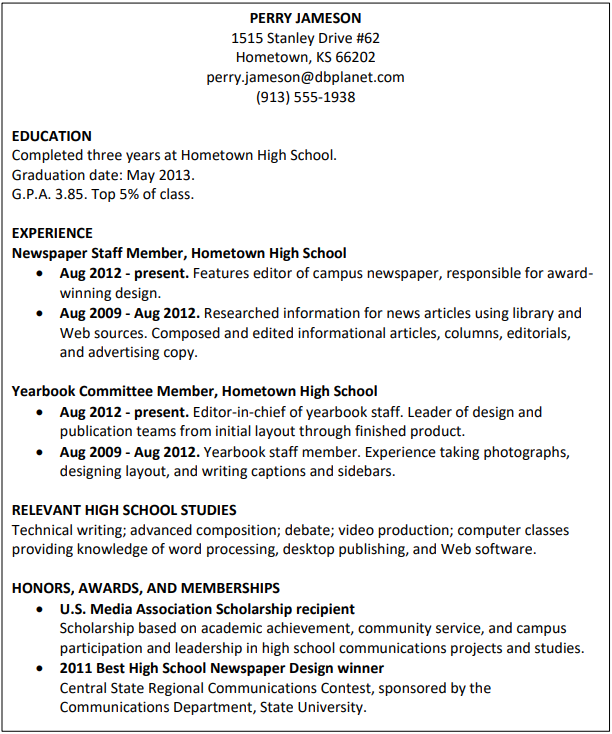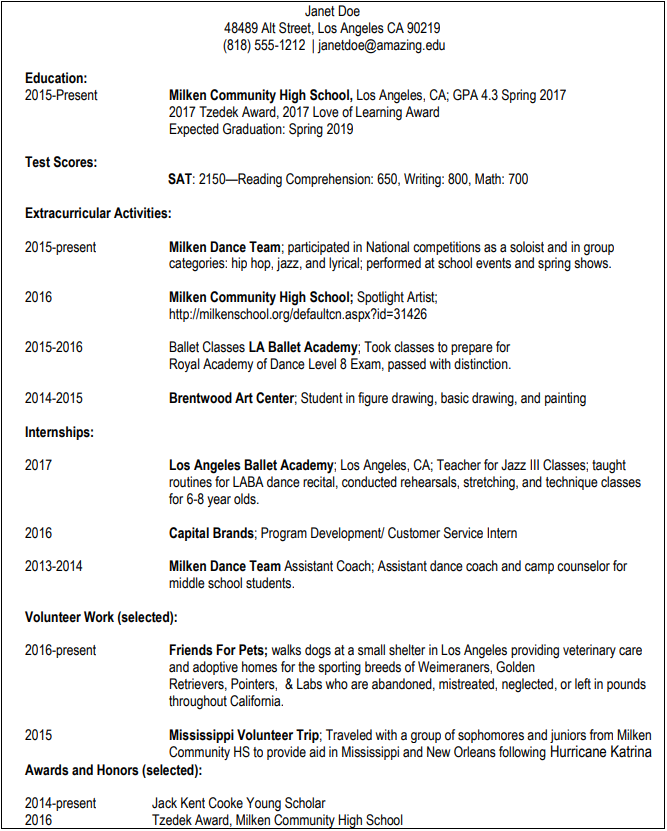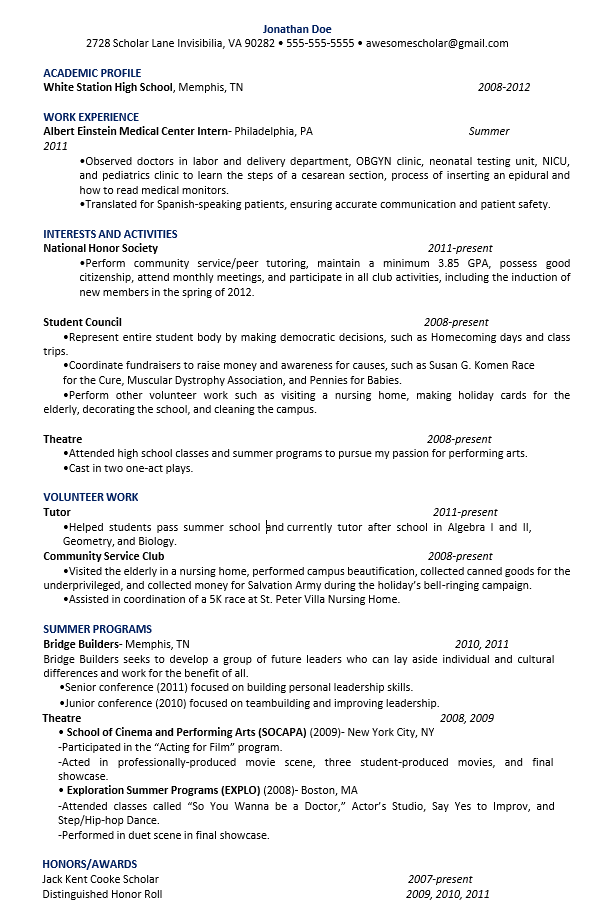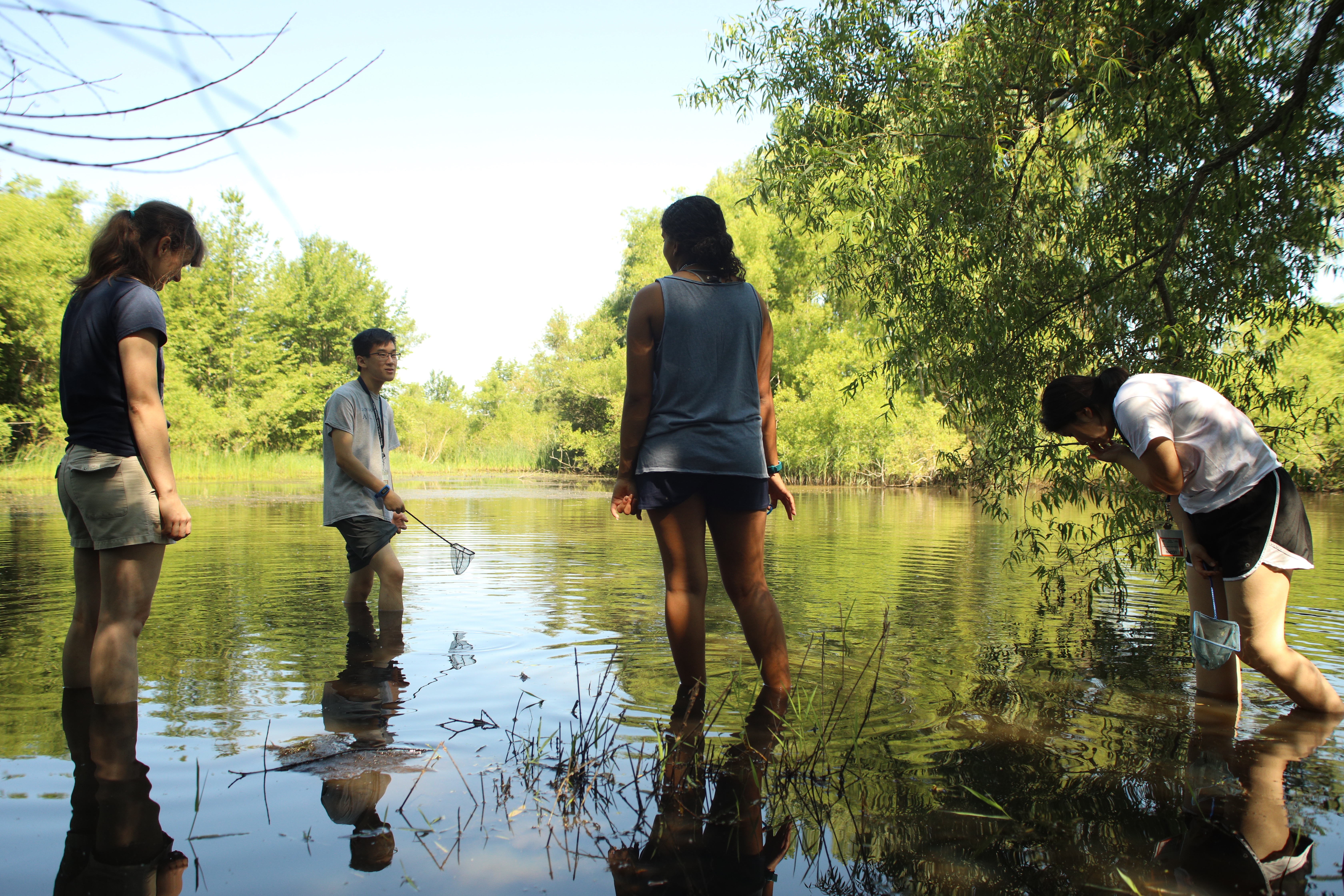Internship Guide for Cooke Young Scholars
About This Guide
What are internships?
Internships are opportunities to learn more about a field that interests you in a practical way. If you’re interested in law, you might intern at a law firm to experience working in the field. If you’re interested in English, interning at a publishing company might be a good fit. The scientists among you may “intern” through research, and secure a research position with a lab. Some future public servants intern through volunteer positions that are directly related to future career or field goals, such as teaching or working on a long-term community service project.
Why do internships matter?
Internships give you the opportunity to experience a field of study or interest from the inside. Internships are not usually paid, but instead interns are offered valuable experiences in exchange for their work. Often interns will perform tasks that assist employees in their everyday functions, and are able to observe a field from a real workplace. Undertaking an internship or research position in a field of interest can also increase your appeal to organizations in that field when you are ready to apply for college, for a job or for any other opportunity in your field of interest.
When should I have an internship?
While internships usually take place over the summer, some students secure school year internships as well. It’s important to keep in mind that your internship commitment should not get in the way of your school work and that your hours should be flexible during testing periods.
This guide serves to simplify the internship process and give you some practical tips. It’s intended mostly for juniors and seniors, and should be complemented by conversations with your educational adviser about your aspirations and interests.
Will the Cooke Foundation find me an internship? Will the Foundation fund my internship?
This guide contains information about securing an internship, including how to craft emails to organizations and write your resume. Please speak to your adviser as you generate ideas for organizations or fields to explore. Your adviser will not find you an internship, but will work with you to determine which opportunities are right for you. Your summer internship may be eligible for food and transportation funding. However, lodging and programmatic costs are not often supported by your ILP. Instead, consider pursuing an internship in your local community, or securing alternative funding. Please speak to your adviser regarding specific ILP details for your internship opportunity and cost.
* Please keep in mind that all email, resume and cover letter samples contained in this guide are examples only. When completing your own versions, please make sure to change all of the information to be relevant to your situation!
Before You Apply
It’s exciting to look for an internship! But before getting started, it’s useful to think concretely about your interests and goals. The best search begins with preparation, both about what you want to learn and about the skillsets you can share. Researching opportunities and talking to individuals in your fields of interest are important parts of the internship search process, and are what make the best internship opportunities possible!
It can be tough to find internships geared towards high school students, but it’s possible. Make sure to take advantage of your local community connections and recognize that internships can also take place during the school year. You may even find paid internship opportunities with a national organization that has an online presence.
Internship Search
Internship opportunities are often listed on job websites or company websites, as well as on message boards and in newsletters. The following section lists some resources you can utilize in your search. As always, please make sure your parents are aware of the websites you are joining and the organizations you are considering, as well as who you are reaching out to. Internet safety is crucial!
Popular Websites
PeerLift is a website geared towards high school internships, both paid and unpaid. This site allows you to choose your grade level and interests and it will provide a list of available internships. PeerLift’s mission is to connect high school students of every background to a wide range of opportunities.
RIT provides information on paid internship opportunities for high school students nationwide.
LinkedIn is a social network geared towards job hunting. Users create a LinkedIn profile with an interactive resume that includes schools, work experience, and any activities or community service. You can also describe your interests and the kinds of organizations you’re interested in. LinkedIn gives you the ability to look at organizations and find current and past employees. Often, this can be a good way to know who to email in order to ask about the organization itself. LinkedIn also posts jobs and internships for students.
Idealist is a job website that posts internship opportunities in non-profits around the country, and the world. This site works better for scholars in large cities, as the majority of postings are located in major metropolitan areas. Make sure to note whether or not the internships listed are for college students or high school students.
Organization Websites
Are you interested in a particular organization, such as Save the Children or Microsoft? Check out their website, and look for the “career” or “employment” section. This section on organizational websites lists jobs and opportunities currently available. Sometimes organizations will also have a “volunteer opportunities” section that you should check as well, as these sections are more likely to have opportunities for younger people that can turn into internships. You can use LinkedIn to identify organizations and then check out their website for research.
Teachers and Community Members
If you’re passionate about a specific subject or topic, chances are you are already immersing yourself in that subject in one area of your life. Teachers or community members who know you well may also have ideas of opportunities in your community and connections to internships. If you are interested in securing an internship at a science lab, talk to your science teacher and ask for tips. Your teachers may have insight into the fields your interested in and may be able to connect you with college professors who are looking for interns. It’s a great idea to start with people with whom you already feel comfortable.
Ask!
Sometimes internships arise out of conversations. Many scholars have obtained internships through individuals they’ve met or have had internships created for them. Getting to know people at organizations or in industries you’d like to join, can be the first step in obtaining a position. One big part of the internship search in high school is ASKING because many internships are geared towards college students. Asking about the possibility of interning as a high school student takes guts, but it’s often the best way to secure an internship.
Networking
Networking is just another word for getting to know people. There are many places to find internships online, but sometimes these internships are geared towards college students. One of the very best ways to secure an internship is to make connections (network) and talk to people who are doing things you find interesting! Send some emails, get to know people. The next thing you know, you could be working with them!
You’re already part of several networks – it’s just a matter of tapping into them. But how do you tap in, you ask? Please see the following tips.
The Jack Kent Cooke Foundation Community
The Cooke Foundation community is a great place to learn more about prospective internships and about different paths to entering fields that interest you. One easy place to start is with your educational adviser. Your adviser will have suggestions for ways to get involved and may be able to connect you with a current or former Cooke Young Scholars who have similar interests!
Informational Interview
Informational interviews are a way to find out more about an organization and learn what makes that organization tick. It’s also a way to learn from the people who inspire you and ask questions about the way they got to their current position. It is important to note that informational interviews are not interviews, and they are not a space for you to talk about yourself. Instead, the purpose of an informational interview is to ask questions, and learn.
The best way to secure an informational interview is to begin with research and an email. Please see below for suggested email formats. Pay close attention to the politeness of your email as well as the background info you share about yourself.
Example 1 (following up on conversation):
Dear Mr. Giles,
My name is Dawn Summers and I am a junior at Sunnydale High School. We met briefly at the BSU dinner last week, and I wanted to follow up on our conversation. I am currently studying U.S. History in school and am working on my own to learn more about human rights. I am also volunteering each week teaching ESL and am interested in getting more involved in the refugee field.
Would you be open to an informational interview? I am eager to learn more about your experience at Nonprofit Organization and in the field in general. If your schedule allows, I hope that we will be able to connect in person or over the phone for about 20 minutes. Please let me know a day and time that works for you, and hopefully we can speak soon.
Sincerely,
Dawn
Example 2 (with mutual connection):
Dear Ms. Duncan,
My name is Laura Palmer and I am a junior at Peaks High School. I was given your name by our mutual friend, Ms. Janice Dickinson, who volunteers with you at the Community Center. She suggested I contact you because I am very interested in and excited by chemistry and am interested in learning more about practical experience. I currently take Organic Chemistry at school and I am the President of our Chemistry Club.
Would you be open to an informational interview? I am eager to learn more about your experience working at a lab and about Chemistry Organization in general. If your schedule allows, I hope that we will be able to connect in person or over the phone for about 20 minutes. Please let me know a day and time that works for you, and hopefully we can speak soon.
Sincerely,
Laura
Example 3 (cold email):
Dear Professor Xavier,
My name is James Howlett and I am a senior at the School for Gifted Youngsters. I found your name on my school’s alumni database as I was conducting a search for alumni working in computer science. I have been passionate about computer science for my entire high school career and I am proficient in C++ and Java.
Would you be open to an informational interview? I am interested in learning more about your experience working for Software Company. If your schedule allows, I hope that we will be able to connect in person or over the phone for about 20 minutes. Please let me know a day and time that works for you, and hopefully we can speak soon.
Sincerely,
James
Make sure you do your research and come to the informational interview with a good sense of the questions to ask your contact.
Tips for your interview:
- Dress appropriately for the workplace.
- Communicate that you are interested in learning more information, not in obtaining a specific job position.
- Take notes!
Some questions to ask:
- Can you tell me more about your career trajectory and how you got here?
- What advice do you have for a high school student interested in this field/company?
- What does a typical day look like for you?
- What are some challenges you have encountered in doing this work?
- What are some of the most important skills or experiences necessary for this field/industry/organization?
- Do you have any suggestions for other people I can talk to about these topics?
Follow up
After your informational interview, make sure to send a thank you email. This should be brief, polite, and express your gratefulness for the interview. The email should ask any follow-up questions you may have. Make sure to keep in touch over time, especially if you follow their advice. This is one way to incorporate informational interview contacts into growing your professional network!
Elevator Pitch
This is a short, one-minute description of yourself. The name “elevator pitch” comes from the concept that you may find yourself in an elevator with someone you want to connect with and only have a short period of time to explain who you are and what you are interested in. Your elevator pitch should cover your:
- interests and experience so far,
- academic background and school career, and
- skills and strengths.
Develop several elevator pitches and practice with your friends, a parent, a teacher or your educational adviser. This shouldn’t feel artificial – but it takes time to figure out how to represent yourself in just 30 seconds! Don’t feel discouraged if it’s hard at first – practice makes it easier.
Applying
You’ve done your research, you’ve talked to people in the field and you have found an interesting position. Now, you may be asked to complete an application. Usually, applications will require a resume (or a CV – which is another type of resume) and a cover letter. Some jobs may ask for additional writing samples or a science or music specific resume. The following examples of resumes and cover letters may be helpful to you as you begin to write your own.
Resume/CV
What’s the difference?
A resume is a concise and specific summary of your skills, experiences, and education. It should be honest, holistic, and should evolve as you gain experience.
A curriculum vitae (CV) is a detailed and comprehensive description of your academic credentials and achievements. In high school, your CV and resume will look very similar.
Getting Started
The first step to writing a resume is a good brainstorming session – start off with a rough draft! Some things to brainstorm include, your:
- summer jobs or previous internship experience (including the location and dates you worked),
- volunteer work,
- extracurricular activities,
- student group activities or leadership,
- independent projects,
- publications (or blog posts),
- characteristics and abilities, including transferable skills. (These may include problem solving, being detail oriented, managing groups, leading teams of people, etc.), and
- honors and awards (including the Cooke Foundation Young Scholars Program).
Make sure you are clear about the locations of your work experience, as well as the dates you worked. You should provide descriptions of your experiences and honors, preferably using active verbs and highlighting skills that will help you in the position you seek.
Format
Length: One page is preferable, especially for high school applicants. Two pages maximum.
Format: Consistent style, organized, easy to briefly look over, 12 point font.
Layout: Your experiences can be listed in chronological order or by experience.
Targeted: Each resume should be related to the specific type of job, or position.
Edited: Make sure your resume is completely related to the job, properly edited, etc. Here is a further resume resource from the Columbia University Center for Career Education.
Example 1:

Example 2:

Example 3:

Cover Letter
A cover letter introduces you as an applicant, highlights your qualifications, and shows how you are a great fit to the specific job/internship. It also showcases your writing style and familiarity with the position.
Getting Started
Research the company or organization (website, LinkedIn, social media) and learn more about what skills they value. Brainstorm about how you can contribute to the role you are applying for. Ask yourself: what have you done that are similar to the requirements of this position? This can include volunteer activities, travel experiences, previous work experiences, classwork, internships or even group projects and family travel.
Format
Length: less than one page, for easy reading.
Format: must have header, date, and signature.
Layout: 12 point font, consistent font style, regular margins
Targeted: Your cover letter should be addressed to the hiring manager for the position, should clearly state why you want the position listed, and should not be general or generic.
Edited: Make sure your cover letter is completely related to the job, appropriately edited, etc.
Voice: Make sure you use the active voice and read the cover letter aloud to make sure there is no repetition.
Example:
Maggie Lewis • 16 Scholar Blvd Trenton, NJ 29282 • 650.555.5555 • student@school.org
October 1, 2016
Jonathan Smalls
Director, Human Resources
896 Mission College Blvd.
Santa Clara, CA 95003
Dear Mr. Smalls,
I am excited to submit my application for the Specific Internship position I saw listed on LinkedIn. I am confident that my relevant education, experience, and skills related to this
position merit your consideration.
As you can see on my resume, I will complete my high school degree at Pondside High School in June 2018. During my time in high school I have had the opportunity to study human rights, and also to demonstrate my abilities through practical experience. As a volunteer with ESL Center, I was responsible for working with twelve adult learners of English over the course of six months. This allowed me to build strong relationships with my students, to develop curriculum in partnership with the center, and teach basic English skills to recent arrivals to this country. My experience with ESL Center inspired me to look for more practical experience in refugee service provision and I will be a strong addition to the Specific Internship team.
Through my experiences at ESL Center, it became clear to me that working with vulnerable communities is an incredible passion of mine – whether I am facilitating or designing lessons, I aim to make all service provision innovative, effective, and fun. I am excited to apply for this position in hopes that I may have the opportunity to contribute to such a reputable team in providing services to communities in need.
I would appreciate the opportunity to interview for this position. You can contact me at (650)555-5555 to set up an interview. I look forward to hearing from you soon.
Sincerely,
Maggie Lewis
Interview
Some of these positions may require an interview. This is less typical for high school students, but something to keep in mind. There are a few things one can expect from an interview, whether it be professional or academic.
Professional Clothing
You should dress professionally for each interview, even if you are interviewing with a casual organization. Generally, this consists of nice slacks and a button up shirt, a skirt and blouse, or a dress. These don’t need to be expensive clothes – you can find great options at thrift stores! If you have questions about business casual, or other dress codes, go ahead and ask your educational adviser. They will be happy to help. Additional resources about professional clothing can be found in the Resources section.
Preparation for Common Questions
Each interview is different, but there are some shared questions you can prepare for. Make sure you’ve done your research on the company and the position you’re interested in. Here are a few questions you can expect to encounter:
- Why are you interested in this internship position?
Make sure to be specific and show how much research you have done about this organization and position. Let them know exactly why you are interested in this position and what you can contribute to the organization. - What is your goal in this internship?
Be honest and realistic – what do you hope to gain? It’s important to be honest here, so that your internship will know that you want practical exposure in addition to some of the tasks you’ll be required to do. Be honest about both what you want to do and what you can do. - What are your strengths? What are your weaknesses?
Try to think about three strengths and three weaknesses before your interview and practice talking about them concisely with a friend, teacher, mentor, or parent beforehand. These should showcase that your strengths will add to the work you do, and that your weaknesses won’t detract from that work. Be honest, though – don’t say “I’m a perfectionist and it’s a weakness.” That’s too transparent. - What are your interests? What do you plan to do after high school?
Again, authenticity is the best policy. Your interviewer will be interested in your academic goals!
Follow-up
Don’t forget to write a thank you email addressed to the individuals who interviewed you. Thank them for their time and ask them any additional questions you may have. This lets them know that you appreciated the interview and are really excited about the internship opportunity.
Resources
This list of resources will be updated based on your feedback. If you find a resource that is helpful, please send it to Rachel Salia.
RIT has paid internship and summer research opportunities for high school students.
Berkeley Job and Internship Guide, 2016-2017 is a great overview of the internship process, including how to find an internship and how to prepare a resume. It is geared towards college students, but has some great tips that translate to high school as well.
Columbia University Center for Career Education Tips and Resources has specific tips and guidelines on different subjects, including resumes, interviews, networking and even what to do once in the workplace. This is also geared towards college students, but has some great general tips!
Sample Resume for High School Students
Peerlift is a website with nationwide internship opportunities by interest and grade level.
Internships.com is a site that has over 100K internship listings and has a direct link for high school internships.
WayUp offers internships and jobs from over 20,000 employers.
Indeed is a prominent search engine that aggregates job listings, including internships.
Glassdoor is a career community website that includes internship listings as well as reviews by employees.
YouTern is dedicated to connecting people with internships.
Overview of Business Casual Clothing: curious about what “business casual” means? Take a look at this site, and then check out local organizations that help provide business casual clothing.
YouResearch is a match-and-mentorship program that connects high school students with professors carrying out their research in their area of interest. It’s selective and applications are due in the spring.
